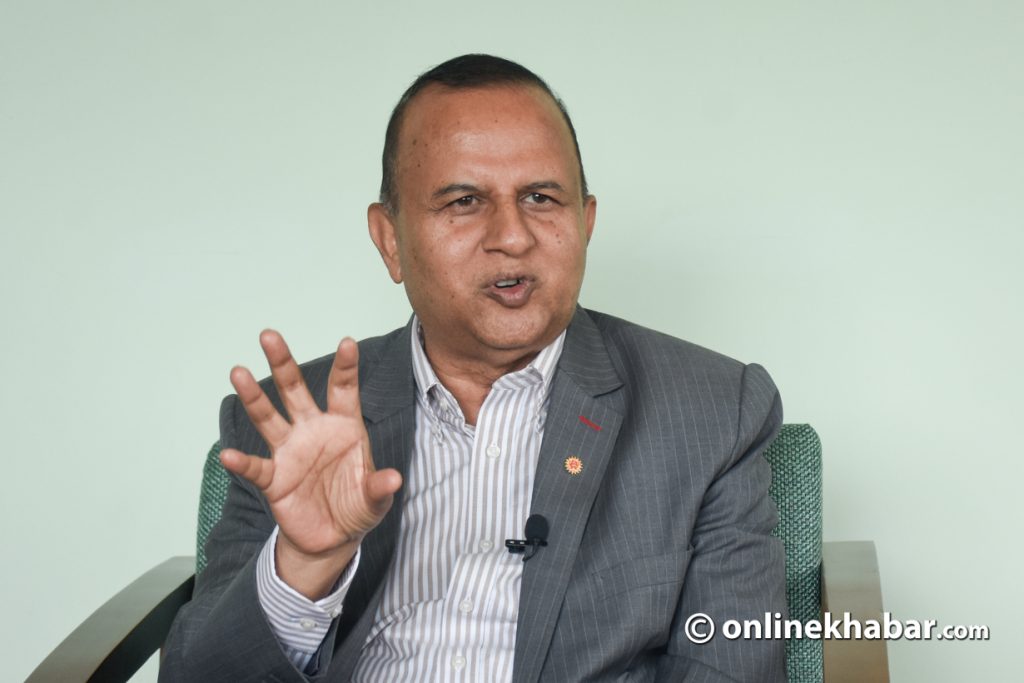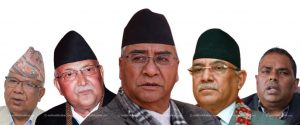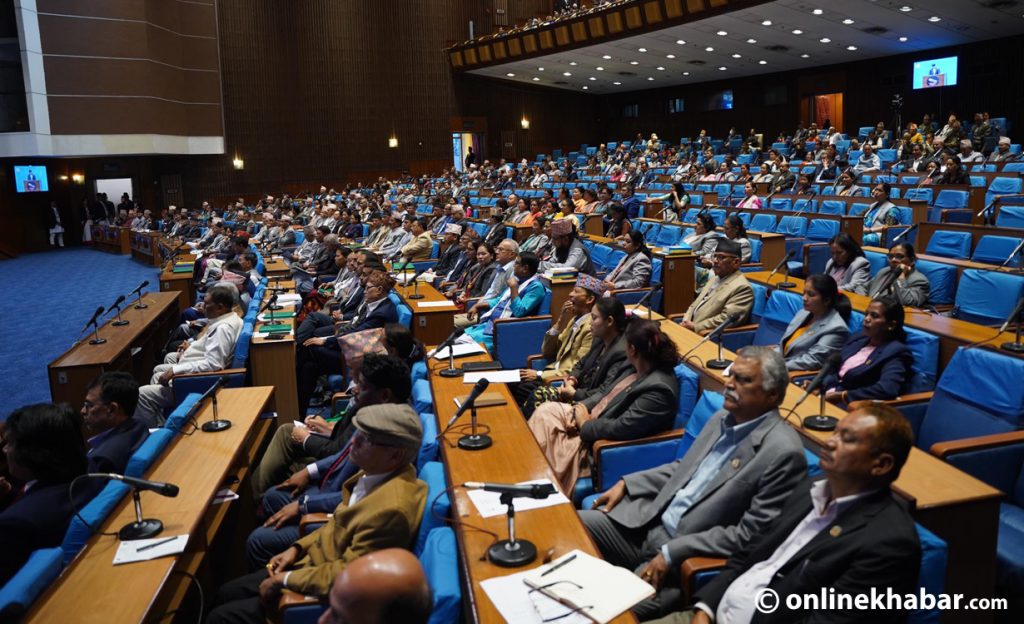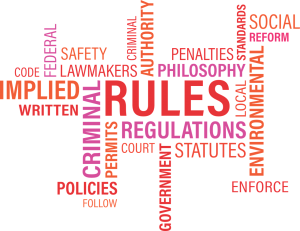
Whose voice is heard in Nepal’s parliament? Is it people or political parties? Or is it the various interest groups?
If you as a nation cannot answer these questions, you will have failed democracy.
If you analyse some events that the House of Representatives witnessed in the recently expired term (2017-2022), you may conclude it is the interest groups that are decisive in the legislative process and it is jeopardising democracy.
Here are some key cases.
No syndicating means yes syndicating
When the erstwhile Nepal Communist Party was in power, the government tried to end the transport entrepreneurs’ syndicates. But, its efforts were in vain and that mostly happened due to the interest groups’ influence on the parliament.
How? After the government opened the doors for the transport committees to register as companies, the syndicates did not have much to do. But, thanks to the weak legislation, they changed into companies — their registration shifted from the Associations Registration Act to the Companies Act, but nothing changed.
A Bill to Amend Some Nepal Acts, 2018’s section 81 was mostly in favour of the transport entrepreneurs, giving them the liberty to easily convert their transport committees into companies. This derailed the government’s plan to end syndicates.
The big Yeti

The parliament was also used to give private companies, a major interest group, the land owned by the Nepal Trust. The Nepal Trust Act, 2008, was amended to make sure the lease for the land where Gokarna Resort is located was extended for a further 25 years even before the current lease was due to end. This benefited Yeti Group quite conveniently.
The act was amended in a way that the prime minister could appoint anyone to head the trust. Prior to the amendment, the trust was always led by the home minister. Along with that, the prime minister could also appoint the members of the committee which was not the case before.
This means those who were close to the Yeti Group became a part of the trust. Ishwar Pokharel led the trust and under him were Yonjom Sherpa, Parvin Raj Dahal and Sitiram Sapkotra as its members. All of them were close to Yeti Group, which meant that even before the lease was coming to an end, they paved the way for Yeti Group to continue operating Gokarna Resort at the property.
This was clear that this was the role of interest groups and despite knowing about the situation of the property, the government not being able to do anything shows how weak they are, says National Assembly member Ramesh Jung Rayamajhi.
“The way the property was given is wrong. I want to tell the government that I am willing to pay Rs 500 million more for the property. Will they give it to me? No, it won’t because a lot of irregularities have happened in his case,” he said in the National Assembly.
The nationalism card

The Foreign Investment and Technology Transfer Act, 2019, which was authenticated on March 27, 2019, was said to have been brought to ease the lives of Nepali farmers, mainly those in the dairy business. But, it only looked out for the businesses involved in the trade.
The bill stopped Amul, an Indian dairy company, from entering Nepal as Nepali businesses felt they would suffer if such a big brand entered Nepal. Nepali dairy owners constantly lobbied to ensure that Amul would not be allowed to enter Nepal.
But, due to this, the farmers have suffered as they have not been getting a good price for the milk they produce. Consumers are also facing issues as they also have not been getting good quality products. But, using the nationalism card, the interest groups made sure that they killed their competition even before it entered Nepal.
Consumer activist Jyoti Baniya says things like these are common in Nepal where interest groups have been found amending acts, giving fuel to the nationalism talks. This, he feels, has affected the consumers in the country.
“There are so many examples where interest groups have altered and amended Nepal’s acts. We need to change this attitude,” says Baniya.
He says the last five years have seen a lot of these cases. Nepal’s lawmakers made a lot of acts, but some of them were bought by businesspersons in the country.
“I feel this term of the parliament has sold a lot of acts or some section of the act. Why? For the personal gain of a few people. I’ve even been told that even some committees were bought to ensure that what the businesspersons of interests groups wanted to happen,” says Baniya.
Beyond the border
There were also international interest groups that forced the country to change some acts. One of them was the Ship Registration Act, 1971 which was amended recently to add provisions related to piracy.
People were shocked when that happened as since the act came into existence, the country has bought no ship. So why was it necessary? Lawmakers say the reason it was amended was the pressure from the Financial Action Task Force (FATF), of which Nepal is a part of.
The amendment of the act was unnecessary, but it was still amended and most Nepalis do not know many acts like these.
Interest groups within parliament

An example of interest groups changing acts according to their will is the Bank and Financial Institution Act, 2017. The bill was brought by the then finance minister Bishnu Paudel. But, the bill was changed in such a way by key players that it became an act to make things easier for them. Even the Finance Committee of the parliament passed the bill.
How? Well, most members of the Finance Committee of the parliament were bank operators. They showed active participation and, in the end, made sure the act became what they wanted it to be.
The government wanted to set a two-term limit on the chairpersons and CEOs of the banks as it felt that governance would be affected if a person stayed in the position for a long time. But, bankers did not buy that and made sure that the chairpersons could stay in office for as long as they wanted. The lawmakers present in the committee could do nothing.
A source from the committee said that most of them could say nothing as most of the bankers-cum-lawmakers were close to senior leaders of the parties. When the party orders them to assist these people, other lawmakers cannot do much.
Lawmakers, after they are elected, are given a choice to choose the parliamentary committee they want to be in. This, many argue, helps the interest groups as they can ask lawmakers to whom they are close to select the committees. Even though Nepal’s constitution states lawmakers need to be impartial, this is rarely monitored.
—
The poor state of infrastructure development in the country, particularly roads and bridges, is a good example of how the parliamentary committees rarely take action against those responsible for delays in these projects.
Nepali Congress lawmaker Jip Tsering Lama was a part of the Development Committee for a long time. Lama is the owner of Lama Construction and was even seen going to monitor projects being carried out by his company.
Lama’s company is currently working on the Kathmandu-Tarai Fastrack. As his company is involved, lawfully, it was wrong for him to be a part of committee meetings regarding the project. But, he stayed there.
Another Nepali Congress lawmaker, Bahadur Singh Lama, who owns Himdung and Thokar Construction, was also a part of the Development Committee. Sources say that he often got angry when people spoke ill about contractors and other similar interest groups.
On August 1, 2021, an official from the Department of Roads informed the committee how a bridge being built on the Trishuli was blown away by the wind. Many laughed, but this is no joke as the official was trying to highlight the poor work done by the construction company.
But, this did not go down well with Lama, who said things like these happen and lawmakers or officials did not understand the technicalities of building bridges. The bridge was being built by fellow lawmaker Jip Tsering’s company.
Janata Samajbadi Party’s lawmaker Hari Narayan Rauniyar, also a member of the same committee, was accused of corruption and was suspended. Rauniyar is the owner of the infamous Pappu Construction which has been delaying the construction of multiple projects in the country. He often blamed the government for the delay in these construction projects.
—
After getting elected through the proportional representation system, Umesh Shrestha choose the Education and Health Committee of the parliament.
A subcommittee under his stewardship prepared a report on how Nepal’s Integrated Education Act should be in the future. Using that, the Education Ministry has drafted the Integrated Education Bill, which is currently in the cabinet.
But, Shrestha’s presence in the committee was seen wrongfully as many people say it was a conflict of interest given he is a part of the management team at Little Angles School and other schools, and he hence represents the interest group of education businessholders. Their concerns are valid too as he has time and again spoken in support of private educational institutions in the country.
—
Foreign employment agency operator, Lal Prasad Sawa Limbu was a part of the Industry, Finance, Labour and Consumer Rights Committee. Businessperson Krishna Kumar Shrestha also chose the same committee.
Bhumi Prasad Tripathi who has invested in a crusher plant chose the Agriculture, Cooperative and Natural Resource Committee. He used his influence to help his nephew who owns a crusher mill in Dhading. He too has investments in the mill.
What was shocking was even people who were tied with corruption cases were a part of the Public Accounts Committee. CPN-UML’s Gokul Baskota, who was accused of asking for a bribe of Rs 700 million in a printing press scandal was in the same committee.
Accountability in question

This mainly happened due to lawmakers forgetting they are accountable to the public, not interest groups, says former speaker Taranath Ranabhat. He says many lawmakers now have a conflict of interest too.
“Lawmakers now think about them first. They want to form connections that help them in the future, and that is wrong,” says Ranabhat.
Former judge Gauri Bahadur Karki says interest groups have not only reached the parliament but have also reached the higher government officials and political parties. He says the Commission for the Investigation of Abuse of Authority not being able to investive some cases is a result of that.
“We can’t even file a case against decisions made by the cabinet. This is due to the influence of various interest groups,” says Karki.
He feels that currently, all political parties are dependent on some interest groups and are acting on their behalf rather than doing what is right for the country.
“Interest groups have bought everyone. These interest groups are Nepal’s mafias. Whicher government comes to power, they buy everyone, but the decision that is made in their favour ears them billion of rupees,” says Karki.
This story was translated from the original Nepali version and edited for clarity and length.


























